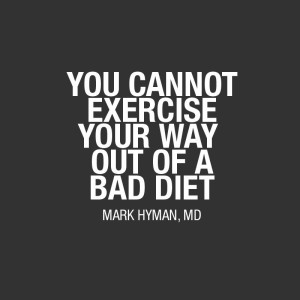10,000 healthy people did it.
- posted in: Coaching
- / with 2 comments
Bonjour,
What if you could know how 10,000 people (yes, 10,000!) maintained a 15-kg weight loss over a year, with 87% of them for over 10 years? That would be quite something, wouldn’t it? So keep reading as this is exactly what the US National Weight Control Registry researched – one of the most interesting studies I’ve seen in years!
Very useful and very inspiring.
Take a minute to look at the key eight findings. If 10,000 people did it, so can you!
1. Healthy people make the transition from losing to maintaining as seamless as possible.
 The optimal way to lose weight is a way in which the changes from weight loss to maintenance are minimised.
The optimal way to lose weight is a way in which the changes from weight loss to maintenance are minimised.
If you lose weight on a very unusual diet, for example where you’re only eating one type of food or you’re on a liquid meal plan, it can make it more difficult to transition to maintenance. You maybe know what to do for weight loss, but then you have to relearn what to do to eat a normal healthy diet. As if you needed another reason not to try the grapefruit diet! Exactly what I’ve preaching for years with my formula Real Food + Pleasure = Health©.
Instead, learning right off the bat what it feels like to consume a more wholesome diet and incorporate more physical activity into your daily routine will help build healthier patterns that truly last.
2. Healthy people are active. Really active.
The average maintainer logs at least 3,5 hours a week of physical activity. There’s limited data currently as to what kind of role the type of exercise plays; what’s more important is simply moving more, even if it’s just brisk walking – as recommended in my last article HERE.
In fact, successful maintainers may be even more active than people who have always been at a healthy weight, according to a previous research. In that study, participants who had always been at a healthy weight were more likely to engage in 30 to 60 minutes of physical activity, where more maintainers sweated it out for more than 60 minutes at a time. So… go for a walk. Now!
3. Healthy people don’t spend as much time in front of the TV.
 How do they find the time to fit in all that fitness? Part of it appears to be coming from decreased screen time, particularly with television viewing. They log less than 10 hours of TV time a week, while the average American adult watches more like 28 – pretty much similar to what we see here in Australia or New Zealand, scary, isn’t it?
How do they find the time to fit in all that fitness? Part of it appears to be coming from decreased screen time, particularly with television viewing. They log less than 10 hours of TV time a week, while the average American adult watches more like 28 – pretty much similar to what we see here in Australia or New Zealand, scary, isn’t it?
But limited time on the couch is important for another reason: for many of us, TV time also means snack time. By cutting down on TV time and increasing physical activity there may be a duel benefit of additional calorie burn and also potentially reducing eating that would otherwise occur.
4. Healthy people find support.
Accomplishing just about any goal feels more attainable with a team of cheerleaders by your side. Social support has been linked to weight loss and maintenance in research and anecdotally among couples, friends and groups who tackle their goals together. Whether it’s making a date with a gym buddy, a nutrition coach or checking in with a fitness-tracking app, sharing maintenance plans with a support team can help you stay accountable.
Most of my clients told me the regular one-on-one Skype calls they have with me is critical to find the support they needed and stick to my (delicious) nutrition coaching program.
5. Healthy people stay positive.
 Anecdotally maintainers tend to concentrate on the good. They have a real focus on the positive, the benefits of weight loss.
Anecdotally maintainers tend to concentrate on the good. They have a real focus on the positive, the benefits of weight loss.
Successful maintainers focus on how much better they feel, how they’re able to do more physically than before or that they’re finding more enjoyment in life. They talk about how they’ve gotten so many benefits and it’s been such a positive experience that they can’t imagine going back to old habits.
Whether those reactions are based on the ways in which they’ve lost the weight or an intrinsic rosy outlook, maintenance does get a little easier over time, at least: the longer a person maintained weight loss, the less effort and attention it took.
6. Healthy people get enough sleep.
Although the sleep habits of maintainers have yet to be researched, there’s an abundance of evidence showing that when we don’t get enough sleep, we rely on more food to energise our days. It’s that simple.
And, unfortunately, our sleep-deprived cravings are not usually for the most nutritious options.
7. Healthy people track their progress…
 Maintainers weigh themselves on the regular, with 38% saying they weigh in daily and 75% at least weekly. Doing so makes it possible to detect any weight gain while it stays relatively small, before it becomes a much bigger problem.
Maintainers weigh themselves on the regular, with 38% saying they weigh in daily and 75% at least weekly. Doing so makes it possible to detect any weight gain while it stays relatively small, before it becomes a much bigger problem.
Also keeping a food journal plays a key role. I see it ALL THE TIME with my clients – but it’s true that I’m a little bit bossy as I ask for their journal every week ![]() . Research (and my experience!) shows that it can help you lose 2 to 3 kilos and keep it off!
. Research (and my experience!) shows that it can help you lose 2 to 3 kilos and keep it off!
8. … But they don’t judge what they see on the scale.
Successful maintainers keep the number on the scale in perspective. It’s important to be able to see the weight on the scale primarily as information and not as how you should feel about yourself for the day.
With anybody, there’s going to be fluctuations of up to a few pounds from day to day based on factors other than changes in fat tissue. Fluid balance, for example, can produce a change in weight of up to a few pounds from day to day. You’re not necessarily interpreting any change in a single day or two to be highly significant. Rather, you’re looking at the trend over the course of weeks. You’re using it as information to guide behaviour and not as a way to determine self-worth.
So… Do you think you can do the same? Tell me!
Have a beautiful end of the week.
Yves

I do not remember when I weighed 167 lb.However, I am eating less grains and am slowly down to 140 again! I remember giving my mother hell when she got to 140! Perhaps I was 125 then!
Wheat is the worst for making my stomach protrude. I stick to whole grains, nuts and seeds and eat one meal of veg. salad with oil and vinegar. Of course I insist on adequate protein and do not avoid butter or whole eggs. My family worshipped butter – along with whipped cream.
I rarely sit down, except in the evening.
My sleep is always fragmented (hypopnea and PLMS) and I get exhausted after lunch sometimes, but I do NOT like to nap. I am 86.
Dear Isabel, Thank you so much for sharing. Many people could be and feel so much better if they followed your lifestyle. You are so inspiring. We need more butter worshippers like you! Merci Isabel! Yves